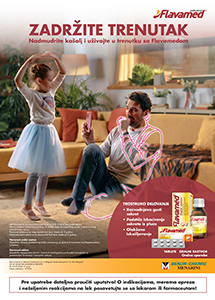PEDIATRIC AUTOIMMUNE NEUROPSYCHIATRIC DISORDER ASSOCIATED WITH STREPTOCOCCAL INFECTION
Abstract
Introduction: The case report shows a nine-year old boy who had normal psychomotor growth and development until 14 months old when he started manifesting regressive behavior. He was diagnosed with autism at the age of 4. When he was 7 years old, the patient underwent allogeneic stem cell transplantation, as part of the autism treatment plan. One year after the transplant, the child was suspected of having PANDAS syndrome due to sudden behavioral changes. The treatment course involved performing tonsillectomy as well as intravenous immunoglobulin treatment.
Case outline: Clinical evaluation led to the recommendation of PANDAS syndrome as a possible diagnosis only after the patient started showing neuropsychiatric symptom exacerbation. The symptom onset included elevated levels of antistreptolysin O titer against an enzyme produced by group A Streptococcal bacteria, as well as elevated titres of antideoxyribonuclease-B antibody. This confirmed the suspicion that beta-hemolytic Streptococcus infection was the causal event that resulted in neuropsychiatric disorders.
Conclusion: The patient showed signs of improvement after the intravenous administration of immunoglobulin which confirmed the underlying immunological aspect of the disease. Additionally, serologic test results that showed elevated antistreptolysin O titer and antideoxyribonuclease-B titer indicated streptococcal etiology. Precisely, these misdirected antibodies set off an inflammatory response that led to the basal ganglia damage resulting in behavioral changes, motor, cognitive and emotional disorders.
References
Hodges H, Fealko C, Soares N. Autism spectrum disorder: definition, epidemiology, causes, and clinical evaluation. Transl Pediatr. 2020; 9(1): 55-65.
Bernstein GA, Victor AM, Pipal AJ, Williams KA. Comparison of clinical characteristics of pediatric autoimmune neuropsychiatric disorders associated with streptococcal infections and childhood obsessive-compulsive disorder. J Child Adolesc Psychopharmacol. 2010;20:333-40
Cox CJ, Zuccolo AJ, Edwards EV, Mascaro-Blanco A, Alvarez K, Stoner J. et al. Antineuronal antibodies in a heterogeneous group of youth and young adults with tics and obsessive-compulsive disorder. Journal of Child and Adolescent Psychopharmacology. 2015;25(1):76 -85.
Ben-Pazi H, Stoner JA, Cunningham MW. Dopamine receptor autoantibodies correlate with symptoms in Sydenham;s chorea. Plos one. 2013;8(9):e73516.
Orlovska, S, et al. Udruga infekcije streptokokne grla s mentalnim poremećajima: Ispitivanje ključnih aspekata hipoteze PANDAS u nacionalnoj studiji. JAMA psihijatrija. 2017.





